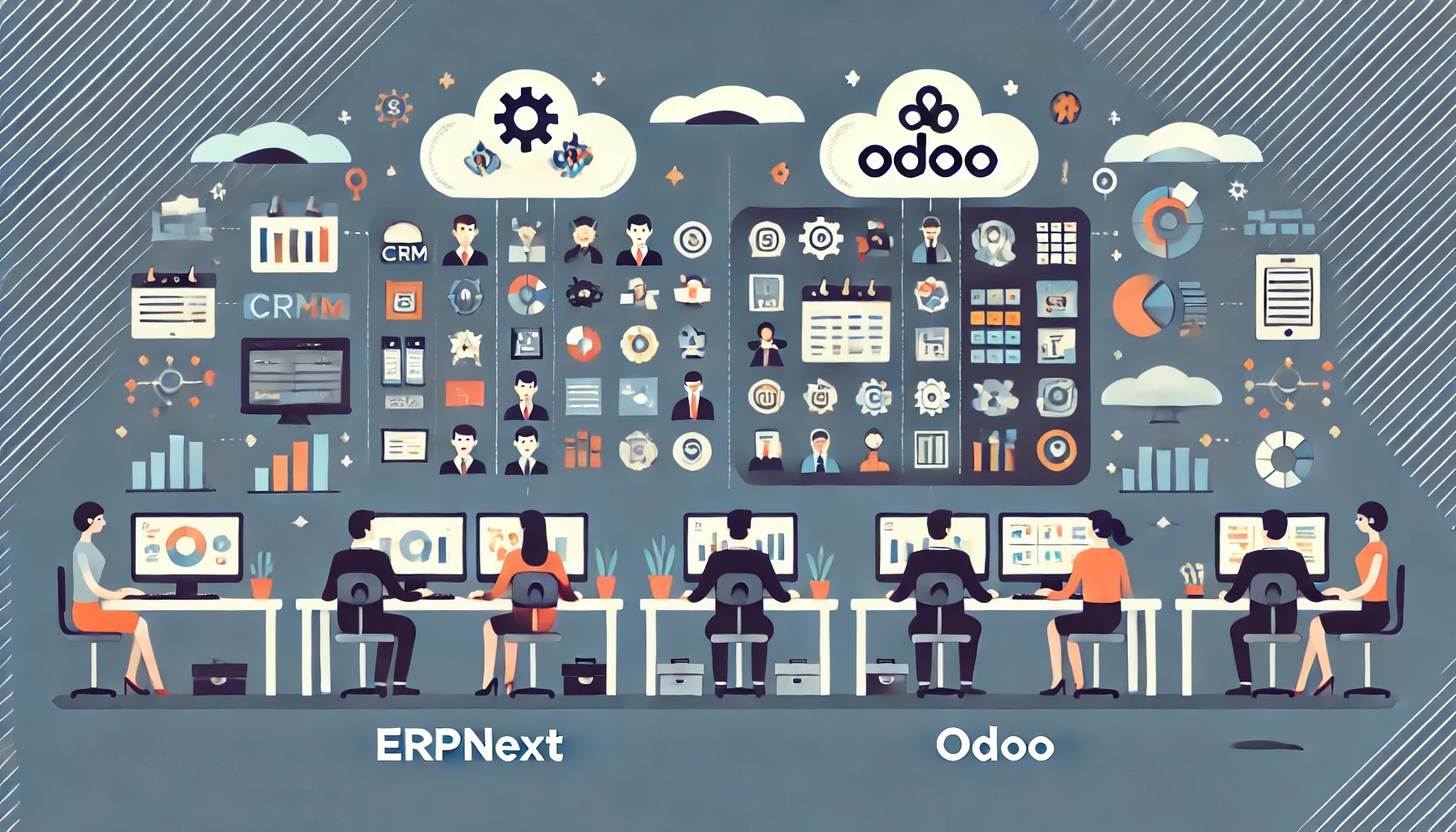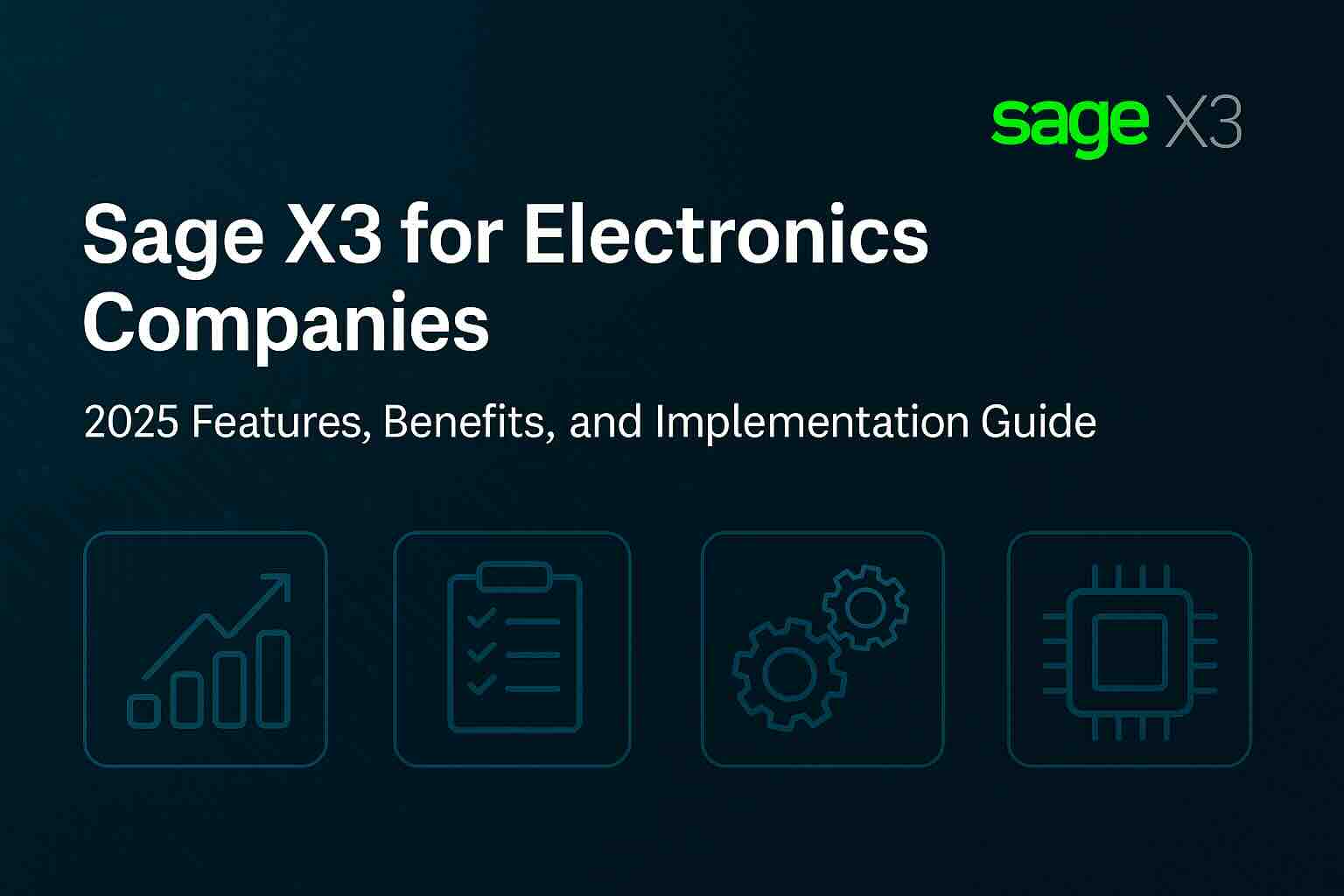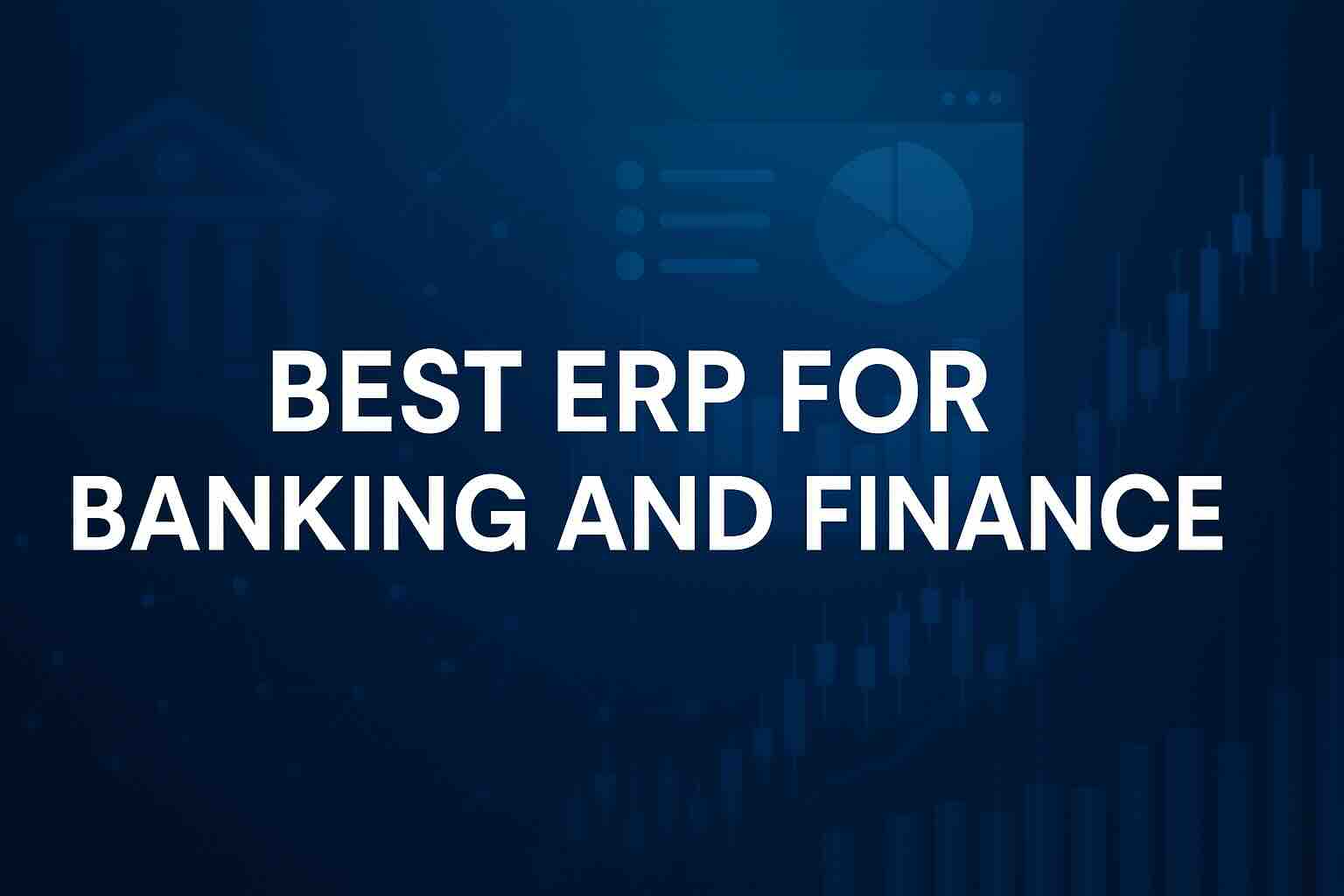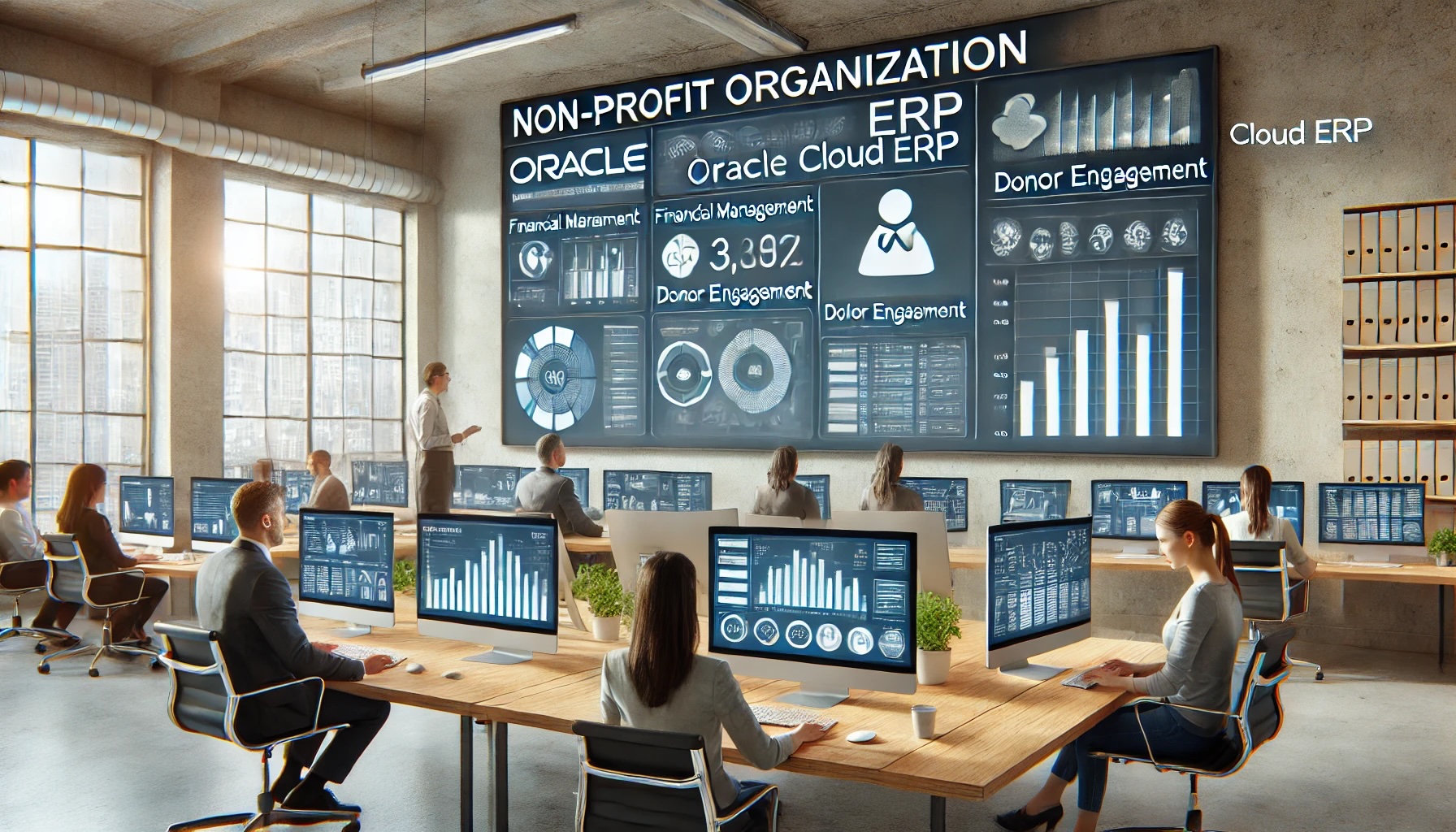Best ERP Software for Financial Management

In the fast-paced world of business, staying ahead requires more than just determination and grit. It demands efficient systems, streamlined processes, and actionable insights—especially when it comes to managing your company’s finances. This is where ERP (Enterprise Resource Planning) software comes in, acting as a centralized solution to integrate, automate, and optimize financial operations across your organization. But with so many options available, how do you decide which ERP software is the best fit for your financial management needs?
In this blog, we will explore the best ERP software for financial management, what features to look for, and how you can select the right solution for your business. By the end, you’ll understand how choosing the right ERP system can significantly improve your financial performance and help your organization thrive.
Why Financial Management Matters in ERP
Financial management is the backbone of every successful organization. It’s not just about balancing the books; it’s about gaining real-time visibility into cash flow, budgets, and profitability while ensuring compliance with tax and regulatory standards. ERP systems designed for financial management consolidate and automate these tasks, enabling your finance team to focus on strategic initiatives instead of repetitive manual processes.
ERP systems with robust financial capabilities provide the following benefits:
- Real-Time Insights: Get accurate, real-time visibility into your financial performance.
- Cost Efficiency: Automate tasks such as invoicing, payroll, and expense tracking to reduce operational costs.
- Regulatory Compliance: Ensure adherence to local and global financial regulations.
- Scalability: Support growth by providing tools to manage increasingly complex financial operations.
Let’s dive into some of the best ERP solutions on the market for financial management.
Best ERP Software for Financial Management
SAP S/4HANA
SAP S/4HANA is a leading ERP solution known for its comprehensive financial management features. It offers real-time analytics and machine learning capabilities that empower businesses to make data-driven decisions. With modules like financial planning and analysis, accounting, risk management, and treasury operations, SAP S/4HANA is ideal for large enterprises.
- Key Features:
- Real-time data processing for financial analytics
- Comprehensive cash and treasury management tools
- Automated compliance and risk management
- Best For: Enterprises with complex financial structures and high transaction volumes.
To find out more about SAP S/4HANA you can visit this link.
Oracle NetSuite
Oracle NetSuite is a cloud-based ERP platform designed with financial management at its core. It integrates seamlessly with other business processes like CRM and inventory, making it a great choice for mid-sized and growing businesses. Its financial module includes general ledger, accounts payable and receivable, and financial reporting.
- Key Features:
- Cloud-based accessibility
- Built-in financial controls for compliance
- Advanced budgeting and forecasting tools
- Best For: Mid-sized businesses looking for scalability and ease of use.
To find out more about Oracle NetSuite you can visit this link.
Microsoft Dynamics 365 Finance
Microsoft Dynamics 365 Finance is a popular ERP solution that combines AI-driven insights with robust financial management capabilities. Its seamless integration with other Microsoft tools like Excel and Power BI makes it particularly user-friendly.
- Key Features:
- Automated financial reporting and consolidation
- Predictive analytics powered by AI
- Global financial management to support multiple currencies and tax jurisdictions
- Best For: Businesses heavily reliant on Microsoft ecosystems and international operations.
To find out more about Microsoft Dynamics you can visit this link.
Infor CloudSuite Financials
Infor CloudSuite Financials is a powerful ERP solution built for organizations looking to modernize their financial processes. It emphasizes usability with its intuitive interface and integrates seamlessly with other business systems.
- Key Features:
- Cloud-native platform for scalability
- Advanced reporting and analytics tools
- Process automation for accounts payable and receivable
- Best For: Industries like healthcare, manufacturing, and public sector organizations.
To find out more about Infor you can visit this link.
Acumatica Cloud ERP
Acumatica offers a flexible, cloud-based ERP solution with robust financial management features. Its user-friendly platform enables businesses to tailor workflows and processes to their specific needs. It’s particularly well-suited for small to mid-sized businesses.
- Key Features:
- Real-time financial reporting
- Flexible deployment options
- Seamless integration with third-party tools
- Best For: Small to mid-sized businesses looking for customization and flexibility.
To find out more about Acumatica you can visit this link.
Key Features to Look for in Financial Management ERP Software
When choosing an ERP system for financial management, it’s important to prioritize the features that align with your business’s goals and challenges. Here are some essential features to consider:
- General Ledger: A core component that provides a comprehensive overview of financial transactions.
- Accounts Payable and Receivable: Automation of billing and collections processes.
- Budgeting and Forecasting: Tools for strategic financial planning.
- Tax Compliance: Features that ensure adherence to local and international tax laws.
- Multi-Currency Support: Critical for businesses with global operations.
- Scalability: A solution that can grow alongside your business.
- User-Friendly Interface: Intuitive design to encourage adoption across teams.
How to Choose the Right ERP for Your Business
Selecting the best ERP software for financial management requires careful consideration of your unique needs. Here’s a step-by-step approach:
- Assess Your Needs: Identify the financial pain points and inefficiencies in your current processes.
- Set a Budget: Determine your financial constraints for ERP implementation.
- Evaluate Features: Match ERP capabilities to your business requirements.
- Consider Scalability: Ensure the solution can support your growth plans.
- Demo the Software: Request demonstrations to see how the software works in action.
- Get Expert Advice: Consult with industry experts or use tools like Compare ERP to help make informed decisions.
Final Thoughts
The right ERP software can transform your financial management processes, improving accuracy, efficiency, and strategic planning. Whether you’re a small business looking for flexibility or a large enterprise seeking advanced analytics, there’s an ERP solution tailored to your needs.
If you’re unsure where to start, Compare ERP can help. Our powerful tool enables you to evaluate and select the best ERP software for your financial management requirements. Don’t leave your financial future to chance—take control today and start your journey to smarter financial management.









